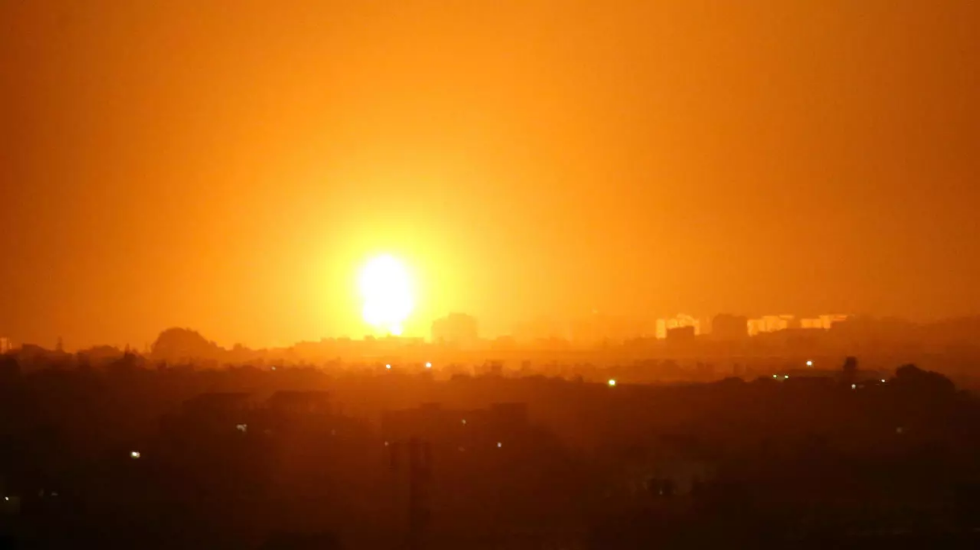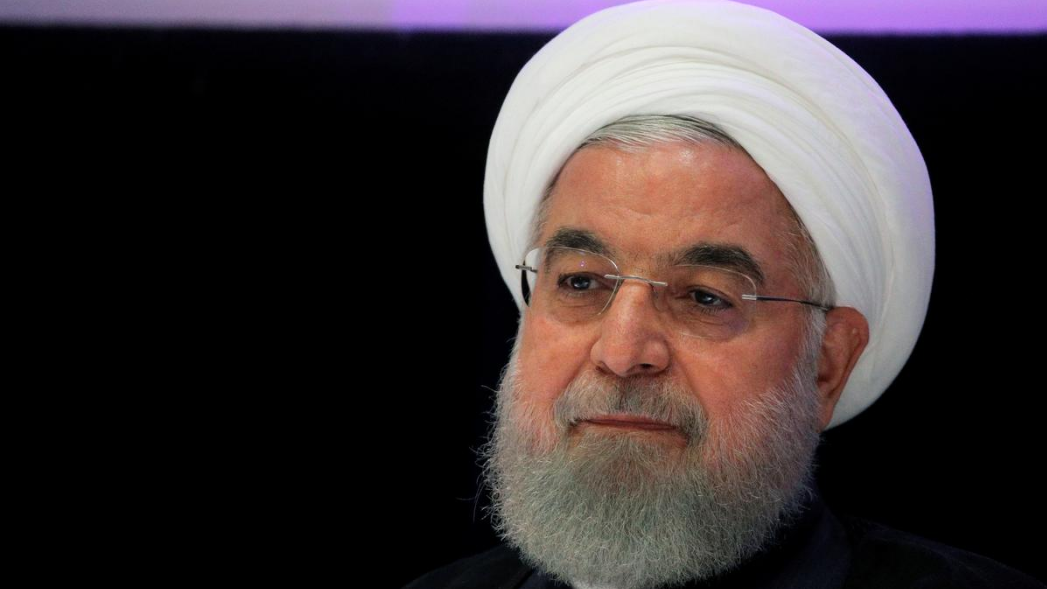
File photo: Tel Aviv City Hall is lit up with the flag of the United Arab Emirates as UAE and Israel announced they would be establishing full diplomatic ties, in Tel Aviv, Israel, August 13, 2020. /AP
File photo: Tel Aviv City Hall is lit up with the flag of the United Arab Emirates as UAE and Israel announced they would be establishing full diplomatic ties, in Tel Aviv, Israel, August 13, 2020. /AP
After the U.S. President Donald Trump announced the "Abraham Agreement," which normalizes the diplomatic relation between United Arab Emirates (UAE) and Israel, the deal stirred anger and dismay from cries of "betrayal" to fears about "falling dominoes" among Arab states in the region, but a cautious welcome from the UAE's Gulf allies.
President Recep Tayyip Erdogan said Turkey is considering suspending diplomatic ties with UAE and withdrawing its ambassador, while Iran's president says UAE made a "huge mistake" with the Israel deal.
Kuwait said its position towards Israel is unchanged cited by the newspaper al-Qabas saying "The Kuwaiti position is consistent with its decades-old foreign policy approach in support of the Palestinian cause, as it is the premier Arab issue, and only accepting a solution if it is what the Palestinians accept."
And Palestinian leaders denounced the so-called "Abraham Agreement" as a "stab in the back" to their cause.
Meanwhile, a senior U.S. official said on Friday that the White House has been in touch with "numerous" countries in theregion, trying to see if more agreements would materialise.
Simmering Palestinian anger
Long-simmering Palestinian anger has flared further since Israel, and the UAE on Thursday agreed to normalize relations, a move Palestinians saw as a betrayal of their cause by the Gulf country.
Over the past week, Israeli forces have carried out repeated night-time strikes on targets linked to the Islamist group Hamas, which controls the Gaza Strip.
Sunday, Israel's army launched new airstrikes against Hamas positions in Gaza and closed the fishing zone around the Palestinian enclave in response to rockets and firebombs sent into Israeli territory.
The measures came after a week of heightened tensions, including clashes on Saturday evening along the Gaza-Israeli border, according to Israeli rescue services. There were 19 such Palestinian attacks on Saturday alone.
Dozens of Palestinian "rioters burned tires, hurled explosive devices and grenades towards the security fence and attempted to approach it," the Israel Defense Forces (IDF) said in a statement.

Smoke and flames rise after Israeli army war planes carried out airstrikes over Khan Yunis, Gaza Strip on August 16, 2020. /AFP
Smoke and flames rise after Israeli army war planes carried out airstrikes over Khan Yunis, Gaza Strip on August 16, 2020. /AFP
The "Abraham Agreement" caps the commitment from Israel of halting its annexation of Palestinian lands in the occupied West Bank.
However, as the move comes on the back of a U.S. decision in 2017 to recognize Jerusalem as the capital of Israel, and the unveiling of this year's so-called "Middle East Peace Plan" that resulted in Israel declaring plans to annex large parts of the occupied West Bank.
The UAE-Israel agreement, from a Palestinian perspective, is little justification for the rapprochement.
The UAE decision "was coming" regardless of Israel's annexation plans, according to Saeb Erekat, the chief Palestinian negotiator. This "decision is at the expense of the legitimate Palestinian national rights," he told the Palestinian news agency Wafa on Friday.
After the UAE's announcement normalizing its diplomatic tie with Israel, Palestinian President Mahmoud Abbas issued a statement denounced the accord. It said the deal was a "betrayal of Jerusalem, Al-Aqsa, and the Palestinian cause."
Meanwhile, Hamas, the group that controls the Gaza Strip, condemned the Emirati recognition of Israel as a "cowardly" and "desperate attempt to influence the struggle to defeat the occupation and the fulfillment of the national rights".
But for some Palestinians, they consider the agreement more of a diplomatic gesture.
"As Palestinians, we haven't had real Arab support for the Palestinian cause. So [the agreement] doesn't hurt because under the table they had been normal," said George As'ad, a Palestinian entrepreneur.

Iranian President Hassan Rouhani speaks at the United Nations General Assembly in New York, September 26, 2019. /Reuters
Iranian President Hassan Rouhani speaks at the United Nations General Assembly in New York, September 26, 2019. /Reuters
Iran says UAE made 'huge mistake'
The United Arab Emirates has made a "huge mistake" in reaching a deal toward normalizing ties with Israel, Iran's President Hassan Rouhani said on Saturday in a speech furiously condemning what he called a betrayal by the Gulf state.
The Iranian hardline daily Kayhan, whose editor-in-chief is appointed by Supreme Leader Ayatollah Ali Khamenei, said "the UAE has turned itself into a legitimate target for the resistance," according to its website.
The UAE-Israel agreement announced on Thursday, which U.S. President Donald Trump helped to broker, is seen as aimed at bolstering opposition to Iran.
In his televised speech, Rouhani warned the UAE against allowing Israel a "foothold in the region."
Rouhani said the deal seemed aimed at ensuring that Trump wins another term in the U.S. presidential election in November and referred to the fact that it was announced in Washington.
"Why then did it happen now? If it weren't a wrong deal, why was it then announced in a third country, in America? So a gentleman in Washington wins votes, you betray your country, your people, Muslims and the Arab world?"
00:36

Other countries might follow the UAE
The UAE is the first Gulf Arab state to establish normalized relations with Israel, and it is the third Arab nation to do so. Egypt and Jordan, which signed peace deals with Israel in 1979 and 1994 respectively and enjoy close ties with the UAE, both welcomed the agreement.
Other countries like Bahrain and Oman could be the next Gulf countries to follow the UAE in formalizing ties with Israel, Israel's intelligence minister said on Sunday.
"In the wake of this agreement (with the UAE) will come additional agreements, both with more Gulf countries and with Muslim countries in Africa," Intelligence Minister Eli Cohen told Army Radio.
"I think that Bahrain and Oman are definitely on the agenda. In addition, in my assessment, there is a chance that already in the coming year there will be a peace deal with additional countries in Africa, chief among them, Sudan," he said.
Mauritania, a member of the Arab League, said it supported the UAE in its decision to sign an accord with Israel to agree to normalize relations, UAE state news agency WAM said on Sunday.
(With input from agencies)